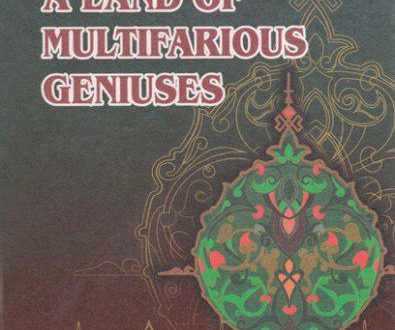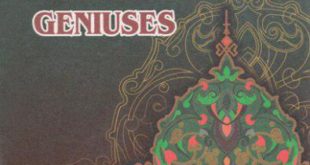As original sources inform us, al-Bukhari began to get interested in learning the Hadiths by heart. As he grew up, he began to study permanently the structure, meaning and interpretation of Hadiths, their authors and origins, their correctness in spelling and originality in quotation. Al-Bukhari was also interested in the personality of the roviys of Hadiths, dates and places of their birth and death, their lifestyles, levels of their education, their relations with other scientists of the time, etc. He also used to study the Hadiths in comparative plan if those Hadiths had been mentioned in different sources. He wanted to know whether those Hadiths had something in general in (heir purposes of creation or they were related to each other in different ways and whether there were interruptions in their structure and meaning. He used to collect the Hadiths and classify them in accord with their purpose and prescription and studied them in close connection with the principles declared in the Holy Quran.
Original sources inform us that Imam al-Bukhari used to cite Hadiths from more than one thousand original sources and authors not only in his motherland but also in foreign countries where he visited with the purpose of study.
As the teachers and tutors of Imam al-Bukhari, we can mention such well-known scientists and experts in the science of Hadithology of their time in the sacred city of Bukhara as Muhammad ibn Salam al-Paykandi, Muhammad ibn Yusuf al-Paykandi, Abdullah ibn Muhammad al-Masnadi, Ibrahim ibn al-Ash’as and some more others. By the age of sixteen, he had studied deeply many Hadiths of different authors and learned by heart the books of Abdullah ibn al-Mubarak, a well-known expert in the world of Hadiths.
Very soon, al-Bukhari’s teachers as well as famous experts in Hadiths of that time began to acknowledge the rare ability of this diligent student. The situation reached to such a degree that most of the teachers and tutors began to treat al-Bukhari very carefully. Some of them were afraid of his presence in their lessons because al-Bukhari used to show and explain their mistakes and misprints in their works as well as their misconducts during the explanations of the facts dealing with the nature and meaning of Hadiths. In order to correct the mistakes in their books, they began to ask al-Bukhari for help.
There is a legend about his rare ability told by a scientist from Bukhara Salim ibn Mujahid: “Once I visited my old friend Muhammad ibn Salam al-Paykandi at his home and he said: “If you had come a little earlier, you would have seen a youngster who is able to recite seventy thousand Hadiths”. I just turned back, went out and saw the boy who was leaving the house and asked him: “Is it you who knows seventy thousand Hadiths?” He said: “Yes, It’s me. Perhaps I know some more”, and he continued: “I never cite Hadiths from the followers of Prophet Muhammad (saas) before I study deeply the facts about their dates and places of birth and death. Besides, when I cite Hadiths from them, I study them in close connection with the princi pies of the Holy Qur’an and the Hadiths of his Eminency Prophet Muhammad (saas)”.
The idea expressed by Salim ibn Mujahid, an expert in Hadiths of his time, can also prove that al-Bukhari was clever enough to feel responsibility for his words and convince the others of his knowledge in the world of Hadiths and was one of the estimated experts in this field. Adding to the words of Muhammad ibn Salam Paykandi that he always lost himself and had a feeling of excitement in the presence of al-Bukhari, he stresses the words of al-Hafiz ibn Hajar that in the presence of al-Bukhari Muhammad ibn Salam al-Paykandi was afraid of making mistakes. If to take into consideration that the event related to Muhammad ibn Salam Paykandi took place when al-Bukhari was still in Bukhara and after leaving Bukhara, al-Bukhari had never met Muhammad ibn Salam al-Paykandi, we must remember when these events took place, al-Bukhari was a young fellow.
From the very old times, an Arabic word “rihlat” was used in relation to a person who had a good knowledge in the field of Hadiths and devoted himself, his mind, his possibilities, his power, force and soul to the study and investigation of the chosen field. And this devotion gave Imam al-Bukhari fame, high estimation and respect not only among his colleagues but also in the whole Muslim world. He was the very person who devoted his life and soul to the study of the Hadiths which established the main rules of behaviour for every person and relations between people of the Muslim world and the word 0″rihlat” could easily be used in relation to him. Imam al-Bukhari used to cite Hadiths,and roviys of them were the level of Imam Malik and Imam Abu Hanifa’s teachers and tutors. This idea is supported by most of the experts of the world of Hadiths.
Thus, we can conclude that up to the age of sixteen al-Bukhari had been busy in learning the legacy of his countrymen in Hadiths and taught by the experts in Hadiths in Bukhara.
After that period, Imam al-Bukhari took his way to the sacred city of Hijaz (Holy Mecca), the centre of Islamic sciences, the motherland of His Eminency Prophet Muhammad (saas), the place where the Holy Qur’an was sent to Prophet Muhammad (saas), the place that was inhabited by the followers of Prophet Muhammad (saas). In this matter as his secretary Ibn Abu Hatam al-Varraq explains: “Al-Bukhari always said: “When I reached sixteen, I had learned by heart the teachings of Ibn al-Mubarak and Vaki’ and then I began to study the works of the other contemporary followers of the Prophet (saas). After that I went to pilgrimage to Mecca with my mother and brother Ahmad””.
As is seen from the explanation by al-Varraq, Imam al-Bukhari began his first visit in 825. This year after visiting the places of pilgrimage in Holy Mecca, he sent his mother and brother back to Bukhara. He himself stayed in Mecca and began to attend the meetings of famous and estimated experts of the Islamic science. There were such famous scholars as Imam Abul Valiyd ibn al-Arzaqi, Abdullah ibn az-Zubayr, al-Hamidi and other estimated figures in the Islamic science.
Having lived in Mecca for two years, he took his way to Medina. From all corners of the Islamic world, the students who wanted to study the sciences on Islam and, especially about the life and activities of Prophet Muhammad (saas), used to come to this 1 Ioly city. In 827, at the age of eighteen, Imam al-Bukhari reached the Holy city of Medina where His Eminency Prophet Muhammad (saas) was buried. At this time a number of estimated experts of Islamic science such as Ibrahim ibn al-Munzir, Mutrif ibn Abdullah, Ibrahim Ibn Hamza, Abu Sabit Muhammad ibn Ubaydullah, Abdulaziz ibn Abdullah al-Uvaysi were leading an active life in learning and teaching the Islamic sciences. Imam al-Bukhari used to learn from them a great amount of knowledge concerning the life and activities oi Prophet Muhammad (saas) and his Hadiths as well as other branches of the Islamic science. During his stay in this Holy city Imam al-Bukhari finished the first version of his book “At-Tarikh al-Kabir” (A Big History). As it was mentioned by a number of historians of that time, Imam al-Bukhari’s stay in such cities as Hijaz (Mecca), Medina, Taif and Jeddah continued for six years. During this period, he also made short trips to the neighbouring countries.
After that Imam al-Bukhari made his way to Basra in Iraq. At that time Basra was one of the leading centres of the East especially in learning the Hadiths. In Basra Imam al-Bukhari improved and widened his knowledge in the world of Hadiths with the help of such experts in this field as Imam Abu Asim an-Nabiyl, Safvan’ibn Isa, Badal ibn Ar’ara, Sulayman ibn Harb, Abul Valiyd at-Tayalisi, A’rim and Muhammad ibn Sinan, etc. Thus, he visited Basra for four times. In this matter, he used to say: “I have visited Basra for four times”.
Ubaydulla Uvatov Professor, Doctor of History
Press service of ISRCIB
 Imom Buxoriy xalqaro ilmiy-tadqiqot markazi bukhari.uz
Imom Buxoriy xalqaro ilmiy-tadqiqot markazi bukhari.uz











